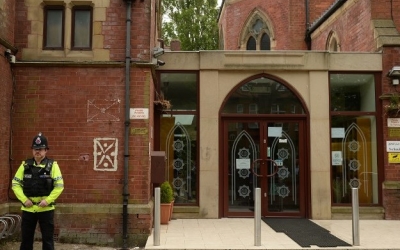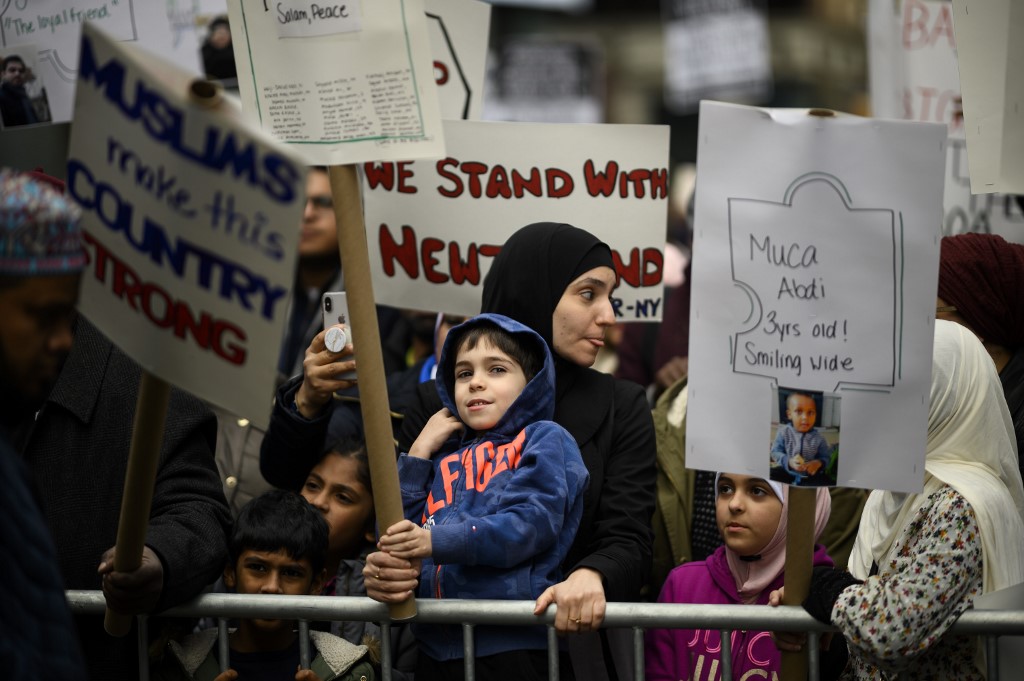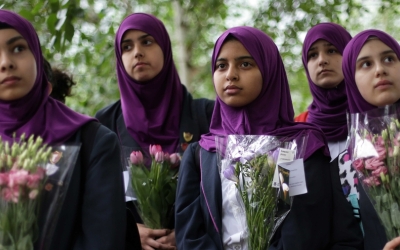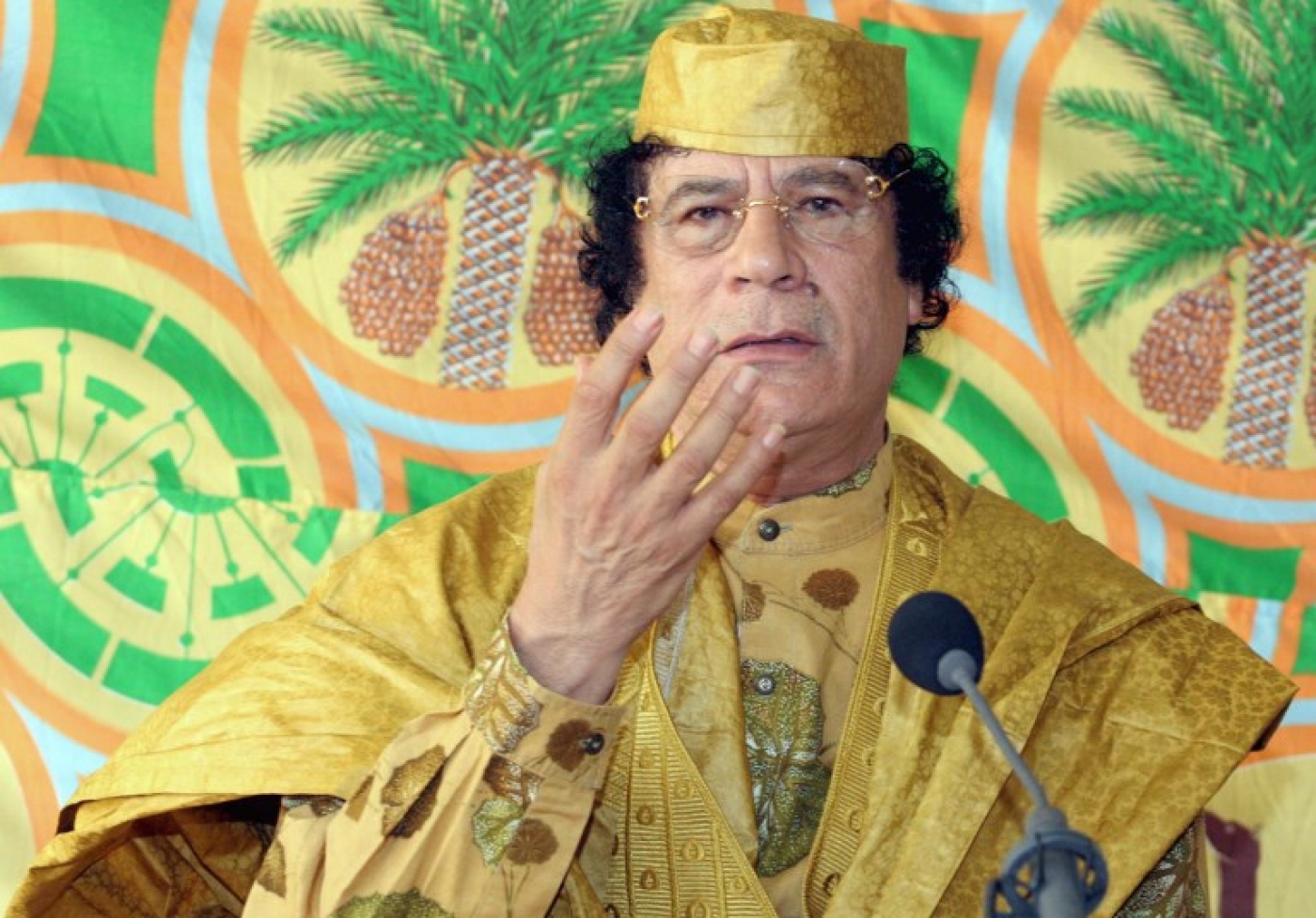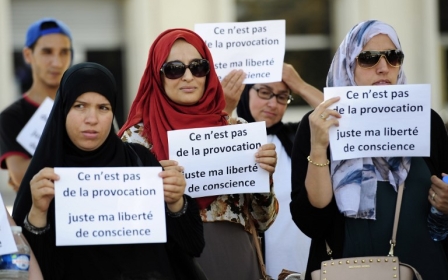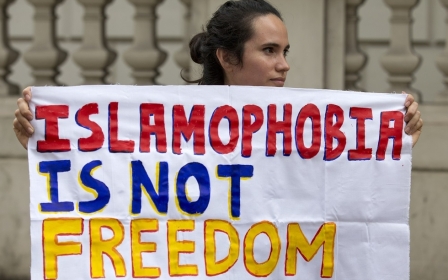The dangerous philosophy of Sir Roger Scruton
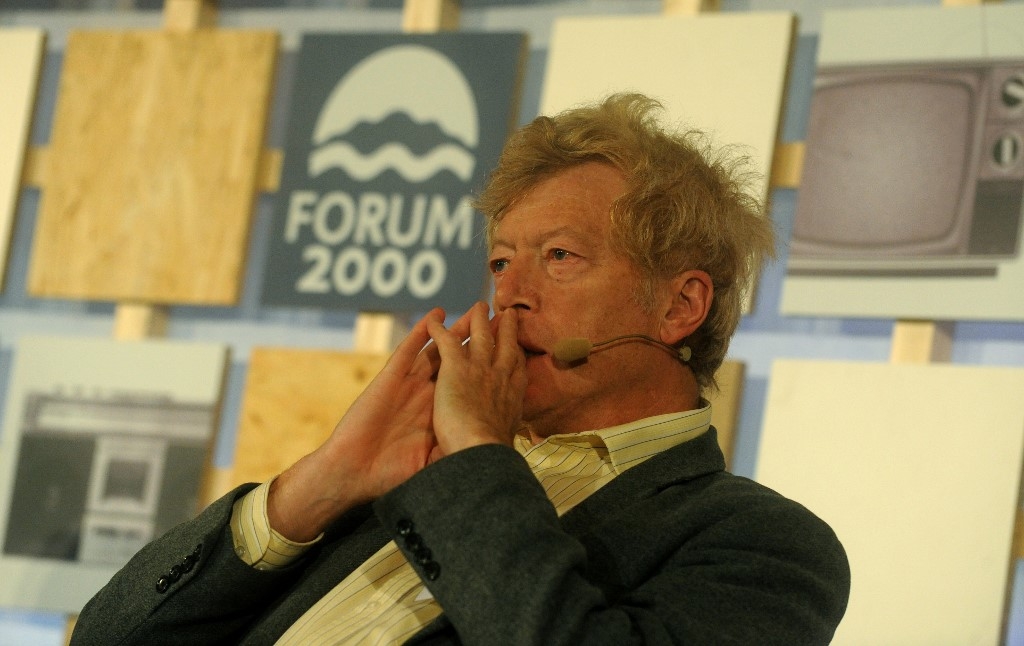
Ideas can be lethal. Herbert Spencer coined the phrase “survival of the fittest” to create a more accurate biological explanation for the evolution of species than the term “natural selection”, used by his peer Charles Darwin. Spencer’s phrase escaped from the walls of biology to become social Darwinism, the pseudo-science that rationalised unrestrained competition between humans and nation-states.
Nazi philosopher Alfred Baeumler legitimised the racist, exterminating ideology of Hitler’s Nazi party through his nightmare interpretation of 19th-century philosopher Friedrich Nietzsche.
In 1929, French thinker Julien Benda wrote a book whose title is remembered much more than its contents: La Trahison Des Clercs (The Treason of the Intellectuals). He suggested that intellectuals, who had once sought to discover and defend universal principles, were using their skills to validate the actions and ambitions of current rulers of states and societies. He predicted, with startling accuracy, that this would help to unleash a new and genocidal war.
Politics and ideology
A host of intellectuals have since vindicated Benda by legitimising totalitarian regimes (principally, but not exclusively, Communist ones). All such regimes have appointed someone to create an ideology to provide a shop window for venal or gullible intellectuals.
New MEE newsletter: Jerusalem Dispatch
Sign up to get the latest insights and analysis on Israel-Palestine, alongside Turkey Unpacked and other MEE newsletters
Consequently, it has become impossible for thinkers to be “above politics”. All intellectuals, especially public intellectuals who enjoy a high media profile, face the threat of being courted - or simply appropriated - by those in political power. Their loftiest ideas will be debased and vulgarised for political ends.
Sadly, intellectuals must now take responsibility not only for what they actually say, but for how other self-interested people will use what they say.
Imagine the reaction if Scruton had claimed that the word homophobia was invented by homosexuals as a way of heading off legitimate criticism
Journalists don’t pay enough attention to the ideologies that drive political movements. True, some important work was done sketching out the intellectual origins of the Iraq invasion of 2003, but it’s never been followed up properly. This helps explain why neoconservatives, in the shape of National Security Adviser John Bolton and others, remain influential in US and British foreign policy.
This brings me to Sir Roger Scruton, regarded by many as the leading British Conservative political philosopher, who was sacked from his government job last month after allegedly making careless comments to the New Statesman magazine.
Since then, Scruton’s supporters, above all Douglas Murray in a Spectator magazine cover story, have launched a powerful defence, saying Scruton is the innocent victim of a scurrilous hit job by an interviewer who quoted him out of context.
‘Invasion’ of Muslims
There is a great deal of truth in this defence. The full transcript of the New Statesman interview with Scruton shows that he did not make antisemitic remarks, as the New Statesman suggested. Nor did he make racist comments about Chinese people.
However, the transcript does show that Scruton made ugly comments about Islam. When discussing Hungarian Prime Minister Viktor Orban, he said that “the Hungarians were extremely alarmed by the sudden invasion of huge tribes of Muslims from the Middle East”.
Hungary was never threatened by an invasion of huge tribes of Muslims. What a wretched way to refer to helpless Syrian refugees, many of them Christian, fleeing civil war. It is possible that Scruton was invoking the ancestral fear of Hungarians for the Ottoman conquerors of the 16th and 17th centuries, but even this would be a huge oversimplification of history.
Many contemporary Hungarians preferred the Ottomans to their Hapsburg landlords. Perhaps more than half of the Ottoman army that notoriously besieged Vienna in 1683 was made up of Christians rather than Muslims – Greeks, Armenians, Hungarians, Bulgarians, Romanians and Serbs fighting alongside Arabs and Kurds, as well as Turks and other Muslims.
More seriously, Scruton dismissed the idea of Islamophobia as “invented by the Muslim Brotherhood in order to stop discussion of a major issue which we are all worried about”.
I can find no serious evidence that the word was invented, as Scruton claims, by the Muslim Brotherhood. According to the Oxford English Dictionary, the first recorded use of the term was in 1923 in the Journal of Theological Studies, before the Brotherhood even existed.
Manipulating discourse
If any religious group can claim credit for its contemporary popularity, it is probably the Quakers rather than the Muslim Brotherhood, whose ability to manipulate and control public discourse is less substantial than Scruton thinks. The Runnymede Trust, backed by the Quaker-inspired Joseph Rowntree Foundation, advocated the term as a way of defining the poisonous atmosphere of irrational fear and hatred that began to infect public discourse around Islam in the late 1990s.
Imagine the reaction if Scruton had claimed that the word homophobia was invented by homosexuals as a way of heading off legitimate criticism, or that Europe was threatened by “huge tribes of blacks”. A newspaper such as the Sunday Times, or a magazine such as the Spectator, would not have come to his defence.
In any case, it is wrong to quibble over a word as an excuse to ignore a palpable phenomenon. Muslims in Europe and the US have faced public hostility, discrimination in public policy, abuse and physical attacks (the latter now recorded as “hate crimes” by law enforcement agencies) simply for being Muslim.
As with other minorities before them, their enemies are saddling them with collective guilt for the crimes of a few, or even for crimes that are imaginary. As with other minorities before them, they are regularly blamed for their own persecution.
I therefore agree with Jonathan Portes, a professor of economics and public policy at Kings College London, who pointed out that: “Sadly, intellectual, political and street-level bigotry are inseparable, both in theory and practice.” It is sometimes hard to distinguish between the views of Scruton himself and bigots such as UKIP leader Gerard Batten and his thuggish “adviser” Tommy Robinson.
Blaming multiculturalism
Scruton was not being careless when he offered his views on Islam to the New Statesman. He has held them for a very long time, setting them out in books and articles.
Scruton subscribes to a version of what is now known as the Clash of Civilisations thesis. He wrote in 2017 that “Muslim immigration poses a challenge to Western civilisation, and … the official policy of ‘multiculturalism’ is not a solution but part of the problem."
It is ironic that Huntington’s "Clash of Civilizations" proposition emerged so soon after the US cultivation of Muslim extremists and terrorists, including Osama Bin Laden, as a weapon against the Soviet Union in the late 1980s.
If one looks back through the history of Western relations with Islam, one sees a regular pattern of Christian rulers making opportunistic alliances with Islamic rulers they profess to regard as emissaries of Satan.
Scruton fails to mention that Pierre Gemayel attended the 1936 Olympics, where he was impressed by Hitler’s youth groups
Scruton’s belief in the incompatibility of Islam and the West dates back at least to the 1980s, when he wrote a book titled A Land Held Hostage, defending Lebanese Christians.
It’s a book that repays study. Scruton mostly uses interviews with Lebanese Christians, making little-to-no reference to the many inter-sectarian areas of cooperation and togetherness, as if all sects perpetually hated each other. He rarely criticises the Christian groups in Lebanon, and this defence involves being generous towards the Phalange militia - founded by Pierre Gemayel and later commanded by his son Bashir - which is described by Scruton as “the ‘Christian fascist militia’ of Fiskian legend”. (Sir Roger appears to have an eccentric preoccupation with the journalist Robert Fisk, who he implausibly portrays as if he represented the entire press corps in Beirut at the time.)
But Fisk is nearer to the truth than Scruton. Gemayel first modelled the militia on the Nazis and Mussolini’s fascists. Scruton fails to mention that Gemayel attended the 1936 Olympics, where he was impressed by Hitler’s youth groups. Nor does he mention that under Pierre's son Bashir, the Phalangists even used the same straight-arm salute as Hitler’s Nazis.
Maligning Palestinians
In the same book, Scruton loftily presents himself as an authority on what he calls the “Arab mind”. He states that Arabs place “vengeance before justice”, adding: “Westerners never cease to be astonished by the Arab capacity for instant loyalty - a capacity born of a nomadic past, but now integral to all social expectations formed through the Arabic language.”
Meanwhile, Scruton has little time for Palestinians, citing what he calls their “habit of living by violence”. By contrast, Scruton rarely criticises Israel; for instance, he downplays its role in the massacre in the Sabra and Shatila refugee camps, which was, he says, “unopposed by the Israelis”. True, but an understatement, as Israel’s own admission shows. As eyewitness reports testify, the Israeli army facilitated the massacre, including by lighting up the skies with flares.
I now turn to Scruton’s later writings about Islam and the Muslim world. They are not without merit: he is a fine writer. But there is a persistent problem. He shoehorns life as it is actually lived across the Middle East into the Clash of Civilisations theory. I’ll give a few examples.
Here’s Scruton writing about Islam and private life in an article from 10 years ago: “There is still no place in the shari’ah for the privatization of the moral, and still less of the religious, aspects of life.”
But this is what Rached Ghannouchi, a hugely important intellectual of political Islam, said in an interview: “Islam does not spy on people. It protects private life. Everyone should live their lives as they wish. And everyone is responsible for it in front of their creator.” Does Scruton know Islam better than Ghannouchi?
Striking lack of knowledge
Take Arab nationalism. As part of his Clash of Civilisations argument, Scruton needs to show that Islam is defined by what he calls a “pre-political loyalty” that expresses itself without reference to territory and is indifferent, if not hostile, to the nation state.
Here’s an example of this argument: “Indeed, the most important advocate of Arab nationalism in recent times, Michel Aflaq, was not a Muslim but rather a Greek Orthodox Christian, who was born in Syria, educated in France, and died in Iraq, disillusioned with the Baath party he had helped to found. If national loyalties have emerged in the Muslim world in recent times, it is in spite of Islam, and not because of it.”
Scruton is manipulating the truth. Aflaq did help found the Baath party. But to make his point, Scruton has written out of history the Baath party co-founder and long-term political companion of Aflaq, the Muslim Salah al-Din al-Bitar. He’s also ignored King Faisal of Iraq and Colonel Muammar Gaddafi of Libya - Muslims and supporters of Arab nationalism.
Scruton’s lack of elementary knowledge of the Middle East is striking. If you have been to Egypt, you know you can’t go 10 yards without someone talking about how Egypt is the oldest nation in the world. I’m told it’s the same in Bahrain. Iran was a political entity when Britons lived in mud huts.
In Saudi Arabia, maybe Scruton has a point. Saudi Arabia has always been an artificial state - the only one in the world named after its ruling dynasty. There’s a lot of antagonism against the Saudi project, particularly from the Hijazis.
Syria is patriotic. Likewise, poor, benighted Yemen. I just don't get the sense that Muslim identity is, despite its obvious strength, creating any serious tension against national loyalties. The Islamic State (IS) project for a territorial caliphate failed miserably.
Fostering stereotypes
In the rare cases that a theocratic state has been successfully established, as with the Taliban in Afghanistan, it’s been against the background of a nation state. Scruton’s claim that Islam is incompatible with the nation state is reminiscent of the dual-loyalties trope around Judaism.
Scruton claims that Israel is the one country that is an exception to the rule, saying that it “has established a thoroughly Western form of national government, over territory which is disputed for that very reason”.
This, too, ignores history. The territory is disputed not “for that very reason”, but because of the Nakba. The assumption of Palestinian jealousy is a patronising piece of idiocy perpetrated by those in denial about the long-term traumas created by the Nakba, when 750,000 people were forced from their homes. Most Palestinians would love nothing more than a state of their own.
When it comes to demography, Scruton blunders into stereotypes about high fertility rates
When it comes to demography, Scruton blunders into stereotypes about high fertility rates: “This is especially so in societies where the women, although hidden away, are encouraged to have children, and where the quantity rather than the quality of children is the most important sign of status.”
According to reports, fertility rates across the Middle East are falling, not rising. In Bahrain, Iran, Lebanon and Qatar, the total fertility rates of nationals are already at or below the replacement level of 2.1. According to the Pew Research Center, global Muslim population growth is expected to fall from an average of 2.2 percent a year between 1990 and 2010, to 1.5 percent a year from now until 2030. The exception is Egypt, where there has been an increase in growth after 50 years of decline. It remains to be seen whether this will continue.
Misrepresenting Hezbollah
Again and again, the Clash of Civilisations theory does not hold up. Writing in 2009 about Lebanon, Scruton noted: “Its current fragility is largely due to the Islamists of Hezbollah, who have allied themselves with Iran and Syria and reject Lebanon as a national entity to which any loyalty is owed.”
Lebanese politics is far too complex to simplify like this. Many groupings, factions and individuals must share the blame for troubles in Lebanon. Few come out smelling of roses. It is just as possible to argue that Hezbollah is today - and was 10 years ago - a source of political stability in Lebanon. Christians have allied with Hezbollah - in gratitude for defending against Israel in the south, and rescuing fellow Christians from violent slaughter at the hands of al-Qaeda and IS.
So much for Scruton on the Middle East. It’s as bad when he writes about Islam back in Britain. It is here that Scruton’s belief in the Clash of Civilisations theory becomes toxic.
Take the example of the so-called Trojan Horse plot. This pseudo-event, fanned by a hysterical media and political class, involved a supposed Islamist plot to take over Birmingham schools. We now know that it was a fabrication.
All but one of the teachers involved have been cleared of professional misconduct. It’s emerged that if anyone was responsible for the takeover “plot”, it was Michael Gove’s Department of Education, rather than a collection of demented Islamists.
Countering Extremism in British Schools?, the excellent book by John Holmwood and Therese O’Toole, establishes beyond doubt the reality of what happened - a shocking injustice. The damage to the careers of dedicated teachers, as well as to the life chances of thousands of students in Birmingham, is beyond computation.
Fanning the flames
Eschewing the scepticism one might expect of a philosopher, Scruton fanned the flames. Here’s his article in the Spectator on the legacy of former Bradford headmaster Ray Honeyford: “With the London bombings, the Birmingham ‘Trojan horse’, and the British-born Islamists fighting in Syria, it has become impossible to ignore the warning that Honeyford sounded.”
Scruton has also given a partial account of the so-called “grooming gangs” in Rotherham and elsewhere. Unlike the fabricated Trojan Horse affair, there’s no question that terrible events occurred in Rotherham, or that failings by police and local authorities were scandalous.
This stereotype exploits the suffering of the Rotherham victims to bolster preconceived notions of what is wrong with the British state
But the piece on Rotherham that Scruton wrote for the mainly American readers of Forbes magazine is unworthy of a scholar. It makes sweeping charges against Muslims (and those with “Asian features”) that are unsubstantiated. It omits key messages of the Jay Report on Rotherham - above all the police contempt for girls who were victims. It imputes unworthy motives to Sir William MacPherson, author of the report into the murder of Stephen Lawrence.
Scruton takes for granted the dubious stereotype that Britain has a particular problem with British Muslims of Pakistani origin preying on vulnerable white girls, a thesis discredited by experts, which casually dismisses from view all the other thousands of victims of child abuse and rape, including boys, non-whites and victims of family abuse, or indeed, victims who were white girls but weren’t abused by Pakistani men.
This stereotype exploits the suffering of the Rotherham victims to bolster preconceived notions of what is wrong with the British state.
One passage, although barely grammatical, is worth quoting at length because it echoes a persistent, hysterical popular myth: alien outsiders and traitors within the ruling class have stolen the country from its rightful patriotic owners.
Here is Scruton’s version: “Hence people in Britain have accepted without resistance the huge transformations that have been inflicted on them over the last thirty years, largely by activists working through the Labour Party … They have accepted the constant denigration of their country, its institutions and its inherited religion, for the simple reason that these things are theirs and therefore tainted with forbidden loyalties.”
Robinson’s ‘silent Islamification’
This brings me back to Portes’ observation that Scruton has lent his considerable authority to making bigotry legitimate, and even respectable. In 2015, the far-right thug Tommy Robinson published an autobiography, Enemy of the State. His language is more demotic than Scruton’s, but the sentiments and the analysis are similar.
According to Robinson, “we are sleepwalking our way towards a Muslim takeover of the country”. He insists: “I really do think we need to start objecting to the silent Islamification of our island.” He asks: “Could the mass migration we’re seeing right now from the Middle East be an invasion by any other name?”
He sees establishment complicity behind “the grooming scandals that just keep emerging up and down the country”. He notes: “I do not apologise for having a problem with an alien ideology, an alien way of living and thinking that is being given a free reign to infect the country of mine and my children’s birth.”
There is a sombre message here about the direction taken by right-wing writers and thinkers over the last quarter-century. Scruton is a longstanding hero of mine. Beside me on my desk, as I write this, is a battered and worn-out copy of his Dictionary of Political Thought, which I’ve had by my side since I became a political columnist almost two decades ago. I have read many of his works, and some are masterpieces.
He sacrificed his academic career to tell the truth as he saw it. Before the fall of the Iron Curtain, he made regular journeys to Soviet-controlled Czechoslovakia to build up links with dissidents. After the fall of the wall, then-president Vaclav Havel recognised this work when he awarded Scruton the Czech Republic’s Medal of Merit.
Joining the lynch mob
Scruton is not, in my opinion, a neoconservative. I see him as a Burkeian conservative, who respects institutions, rule of law and tradition. By contrast, neoconservatives tear down institutions and often despise the rule of law.
On Islam, he is capable of writing with clarity and understanding. Scruton writes excellently on the great 14th-century Arab thinker Ibn Khaldun, for example. His analysis of al-Qaeda as a combination of personal creation by Osama bin Laden and pre-existing sociopolitical forces is brilliant and succinct. An empathetic passage in his novel The Disappeared suggests that he can even see Muslims as potential conservative allies.
But too often, he gets mixed up with ignorance and prejudice. Scruton likes to portray himself as the lonely voice of truth, paying a heavy price for his beliefs. When it comes to Islam, the professor is too often part of the lynch mob he professes to disdain.
Additional reporting by Jan Westad.
The views expressed in this article belong to the author and do not necessarily reflect the editorial policy of Middle East Eye
Middle East Eye delivers independent and unrivalled coverage and analysis of the Middle East, North Africa and beyond. To learn more about republishing this content and the associated fees, please fill out this form. More about MEE can be found here.



